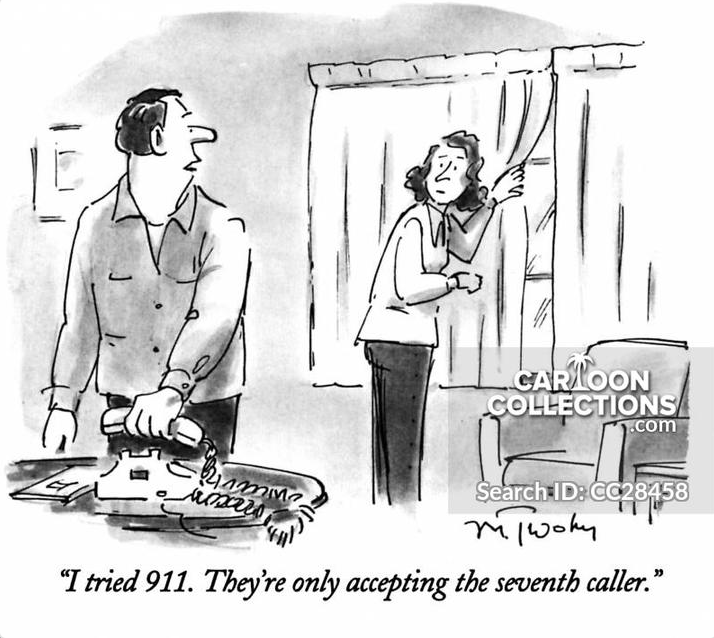
Co-written by Mary Pat Luetke-Stahlman & Sophia Lang
One of the biggest selling points behind Convo Relay has always been that they are a “Deaf owned business.” Interpreters who have demonstrated strong core values within the Deaf community have often been encouraged to work at Convo Relay. On Convo’s About Us page they say, “We connect humans.”
Convo has long boasted of being a Deaf-owned business and that their understanding of human connection is different, especially with the use of technology rapidly changing our society as a whole. Over the last two years, interpreters who work for Convo share that they have been faced with a rude awakening. This “Deaf owned company” has become a living nightmare: interpreters feel like they are being abused and they say call centers are closing left and right, some interpreter say that call center managers are transferred back and forth, It seems like very little to no opportunities for wage raises, and Convo allegedly doesn’t provide “busy time bonuses.” It is believed that even the Human Resources department has turned its back on the employees.
Those changes are in conflict with their core values of “growth, ownership, and inclusion.”
Growth – Interpreters are sharing that they no longer receive collaboration from their colleagues, their supervisors, and the Human Resources department (some may argue that this is due to the pandemic but the declines began well before the pandemic hit). Interpreters need answers to their questions as well as support to grow as interpreters and as professionals so that they can continue to provide high-quality interpreting for the Deaf community.
Ownership – Making sure Deaf callers own their calls is impossible when interpreters feel like they are overworked to the point of exhaustion and they cannot focus. Interpreters are reporting that they are repeatedly bogged down with calls for work conferences, school, funerals, medical appointments, legal proceedings, and so forth. Many of these calls would have never happened before the pandemic, and they now have become common. It is also not possible for Deaf callers to own their calls because oftentimes they are stuck with interpreters who may not be qualified to handle calls with heavy medical, legal, or other content. Some interpreters are in an ethical dilemma because they have never interpreted in medical or legal contexts before and they know they are not qualified to take those calls, but at the same time there’s no other way to transfer the calls to another available interpreter who would have considerable medical or legal interpreting experience. Between the uptick of VRS calls in the United States and the existing contract with Canada VRS, Convo Relay are allegedly forcing their interpreters (in call centers only) to alternate between U.S.-based calls and Canada calls.
Inclusion – From the perspective of (Convo Relay) interpreters, they are no longer valued. Three times between August 1 and September 30, surveys were sent out to interpreters suggesting that the company wanted to know more about varying things including culture, equipment, their overall health, and whether they were happy. Austin, Toledo, Denver, Roseville, Pleasanton, New York City, Rochester, and Burnsville call centers have people sharing that they are crying for help, but it has been over a month and allegedly not one peep from upper-level management.
Convo Relay claims that they have a supportive and inclusive team dynamic. Interpreters who have worked at Convo for 3+ years say that the company used to, but not anymore. They also share that going to work is now “a living hell.” Before the company culture started changing roughly two years ago, interpreters were able to handle longer working days due to satisfactory support and now they are unable to last more than six hours without being exhausted. Interpreters report going home and having emotional breakdowns because serious disruptions happened with some calls and they are not getting any of the support they have repeatedly asked for and the company seems to have a lack of heart.
When Deaf Vee Journal inquired about going to work for Sorenson, interpreters mentioned that they have “Sorenson interpreter” friends and made a comparison: “It is the exact same as working at Convo now, but it’s worse at Convo because we came here with hope, only to get destroyed.” Convo was considered a “mom and pop shop” versus Sorenson, a “large corporation.” Everything that has been shared thus far indicates a counterintuitive and counterproductive process.
Interpreters believe that Convo is going down a downward spiral and nothing seems to be slowing it down. As the Federal Communications Commission (FCC) has stated, “VRS providers must answer 80 percent of all VRS calls within 120 seconds. VRS providers must also offer the service 24 hours a day, seven days a week” (FCC consumer guide). With the increase of work demands at Convo Relay (especially with their new contract with Canada VRS), Convo customers are seeing an increase in wait time. There are times where customers experienced 30-45 minute wait times to get an interpreter and interpreters are reporting angry customers when this happens.
The culture changes at Convo Relay has negatively impacted interpreters and customers. There is a shared hope that Convo will wake up and strive to go back to the way it was before, where Convo truly was a model Deaf-owned business that treated their employees as highly valued.
Convo has declined to comment at this time.





